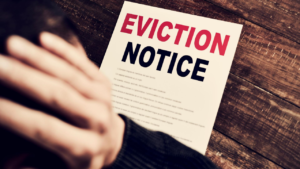With the COVID-19 pandemic slowly beginning to feel less dangerous but still economically destabilizing, California rental property owners need to understand the implications of AB 3088, also known as the Tenant Relief Act. This is a law specific to California. It’s intended to assist those tenants who cannot pay rent due to financial hardships from the coronavirus pandemic.
This ordinance is different from the CDC eviction moratorium, which is a federal ban on evictions. We’re talking about the variables in these two laws and what they mean for you.
RentSimpli is a full-service San Diego property management company specializing in single family homes, townhouses, condos, mobile homes, small commercial buildings and small apartments. We are not attorneys, and if you have legal questions specific to your rental property that may be impacted by AB 3088, it’s always a good idea to speak to a lawyer.
Understanding the Tenant Protection Act
With AB 3088, landlords cannot evict a tenant for nonpayment of rent that was due from March 1, 2020 to January 31, 2021, if the tenant is willing and able to document their financial hardship related to COVID-19. It does not forgive rent, but it does protect tenants from eviction. It also bans evictions for those tenants through January 31, but to receive that protection, tenants must pay at least 25 percent of the rent that’s owed for that period.
At its most basic, this law means you cannot evict a tenant who has not paid rent because of a pandemic-related financial hardship. The tenant must declare under penalty of perjury that they are unable to pay their rent because of circumstances related to COVID-19. Only a resident who returns a signed declaration after a pay or quit notice is served is protected.
A couple of other things you need to know:
- Rent owed from March 1, 2020 to August 31, 2020 is considered the “protected time period.”
- Rent owed from September 1, 2020 to January 31, 2021, is considered the “transition time period.” If a declaration has been signed by a tenant, the protection against eviction is upheld, but the tenant has to pay 25 percent or more of the rent that’s owed by January 31, 2021 to hold their protections. The balance of their unpaid rent is still owed.
- Landlords must comply with just cause eviction protections in The Tenant Protection Act of 2019, even if their property was previously considered exempt from the law. Owners of single-family homes and condos can terminate a tenancy if they’re selling the home or moving into it themselves.
- Recently, a bill was passed that extends the statewide eviction moratorium for tenants who have been impacted by the pandemic. SB 91 extends the moratorium to June 30, 2021.
Centers for Disease Control Federal Eviction Moratorium
 The CDC implemented an eviction moratorium in 2020, citing a potential public health crisis if large numbers of people lost their homes. While the California laws are stricter than the federal law, that doesn’t mean that the California protections will always take precedent.
The CDC implemented an eviction moratorium in 2020, citing a potential public health crisis if large numbers of people lost their homes. While the California laws are stricter than the federal law, that doesn’t mean that the California protections will always take precedent.
Both laws require tenants to complete a legally binding declaration before any protections are enforced. While the CDC moratorium only requires one declaration, according to the California law, landlords can ask for a new one to be returned every month.
Another major difference is that AB 3088 allows a California landlord to ask for proof of financial hardship from high income tenants. The CDC moratorium does not require any kind of proof, regardless of income.
The California law is in place until the end of June while the CDC moratorium expires on March 31, 2021. It’s important for landlords to pay attention to each of these laws and to respond accordingly.
We can help you stay up to date. Contact us at RentSimpli if you have any questions about how the eviction moratoriums apply to your specific rental homes.
RentSimpli is a full-service property management company serving landlords, investors and property owners in San Diego & Riverside Counties, including La Mesa, El Cajon, Chula Vista, Santee, Rancho Bernardo, Escondido, Fallbrook, Temecula, and Murrieta.
